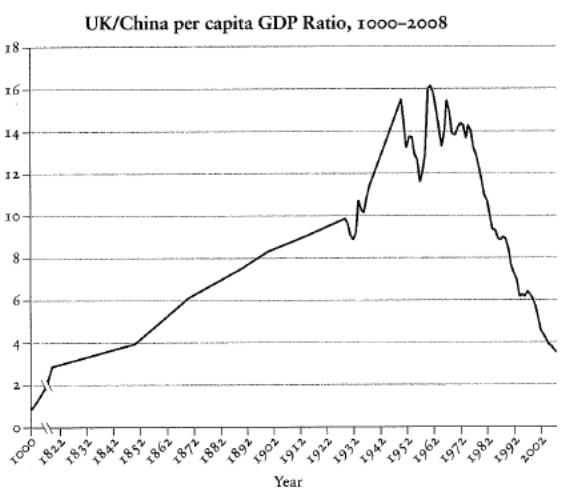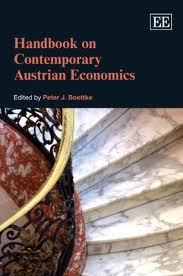By Dr Frank Shostak
Assumptions that some economists are employing in their theories appear to be detached from the real world. For example, in order to explain the economic crisis in Japan, Paul Krugman employed a theory based on the assumptions that people are identical and live forever. Whilst admitting that these assumptions are not realistic, Krugman nonetheless is of the view that somehow his theory could be useful in offering solutions to the economic crisis in Japan. Thus, Krugman wrote,
The purpose of this paper is to demonstrate possibilities and clarify thinking, rather than to be realistic. ………….. In this model individuals are identical and live forever, so that there are no realistic complications involving distribution within or between generations; output is simply given.
But if Krugman’s theory is not realistic, how can it clarify thinking and demonstrate possibilities? What is a theory? According to Ayn Rand,
A theory is a set of abstract principles purporting to be either a correct description of reality or a set of guidelines for man’s actions. Correspondence to reality is the standard of value by which one estimates a theory. If a theory is inapplicable to reality, by what standard can it be estimated as “good”?
In his Philosophical Origins of Austrian Economics (Mises Institute Daily Articles June 17 2006), David Gordon writes that Bohm Bawerk maintained that concepts employed in economics must originate from the facts of reality they need to be traced to their ultimate source. If one cannot trace it, the concept should be rejected as meaningless.
Similarly, Ayn Rand held that concept formation is not something arbitrary. On this she wrote that,
A concept is a mental integration of two or more units which are isolated according to a specific characteristic(s) and united by a specific definition. The units involved may be any aspect of reality: ……..
The employment of assumptions that are detached from the facts of reality was inspired by the writings of Milton Friedman. According to Friedman,
The relevant question to ask about the assumptions of a theory is not whether they are descriptively realistic, for they never are, but whether they are sufficiently good approximation for the purpose in hand. And this question can be answered only by seeing whether the theory works, which means whether it yields sufficiently accurate predictions.
On Friedman’s thinking, our knowledge of the world of economics is elusive. Since it is not possible to establish “how things really work,” then it does not really matter what the assumptions of a theory are. In fact, anything goes, as long as the theory can generate accurate predictions. But is predictive capability a valid criterion for accepting a theory?
For instance, all other things being equal, an increase in the demand for bread will raise its price. This conclusion is true, and not tentative. Will the price of bread go up tomorrow, or sometime in the future? This cannot be established by the theory of supply and demand. Should we then dismiss this theory as useless because it cannot predict the future price of bread?
According to Mises,
Economics can predict the effects to be expected from resorting to definite measures of economic policies. It can answer the question whether a definite policy is able to attain the ends aimed at and, if the answer is in the negative, what its real effects will be. But, of course, this prediction can be only “qualitative.”
Ludwig von Mises held that the various pieces of data utilized by economists in their analyses are an historical display, which by itself cannot provide the economists with the facts regarding the real world. According to Mises,
What we can “observe” is always only complex phenomena. What economic history, observation, or experience can tell us is facts like these: Over a definite period of the past the miner John in the coal mines of the X company in the village of Y earned p dollars for a working day of n hours. There is no way that would lead from the assemblage of such and similar data to any theory concerning the factors determining the height of wage rates.
Hence by Mises,
It is vain to search for coefficients of correlation if one does not start from a theoretical insight acquired beforehand.
Do we know something about ourselves?
Contrary to the popular thinking, economics is not about gross domestic product (GDP), the consumer price index (CPI) or other economic indicators as such, but about human beings that interact with each other. It is about activities that seek to promote people’s lives and well-being.
For instance, one can observe that people are engaged in a variety of activities. They may be performing manual work, driving cars, walking on the street or dining in restaurants. The essence of these activities is that they are purposeful.
Furthermore, we can establish the meaning of these activities. Thus, manual work may be a means for some people to earn money, which in turn enables them to achieve various goals like buying food or clothing. Dining in a restaurant can be a means for establishing business relationships. Driving a car may be a means for reaching a particular destination. Or we can say that individuals employing means to achieve ends. That human actions are purposeful also implies that these actions are conscious.
Note the statement that human beings are acting consciously and purposefully cannot be refuted, for anyone that tries to do this does it consciously and purposefully i.e. he contradicts himself.
Now, individual goals or ends set the standard for the evaluation of means. For instance, if the goal of an individual is to improve his health, then he would establish which goods will benefit his health and which will not. Among those that will benefit him, some will be more effective than others. There is no way, however, to quantify this effectiveness. All that one could do is rank these goods in accordance with perceived effectiveness.
The knowledge that individuals are acting in the means-end framework permits to evaluate the popular view that the “motor” of an economy is consumer spending. Now, without means, no goals can be met. However, means do not emerge out of “the blue” – some of the means such as tools and machinery must be produced first. Hence, contrary to the popular thinking, the ‘motor’ of the economy is production and not consumer spending.
Or, for example, to counter an emerging economic slump various experts urge the central bank to increase the pace of the monetary pumping. By means of an increase in the money supply growth rate it is held individual’s wellbeing is going to be protected.
Money however, is not a suitable mean to promote wealth generation as it can only fulfil the role of the medium of the exchange. On the contrary, an increase in the supply of money is going to undermine the wealth generation process.
Arbitrary concepts can undermine individuals’ well-beings
The employment of concepts in economics that are detached from reality is not something that should be taken lightly. For instance, one of the mandates of the central bank is to pursue a policy that is aimed at stabilizing the price level.
The price level is seen as a weighted average of the prices of various goods and services. From this one could also infer that the total purchasing power of money is a weighted average of the purchasing power of money with respect to various goods and services. (Note that if the price of two potatoes is one unit of money, then we can also say that the purchasing power of the one unit of money is two potatoes). It is however not possible to add up the purchasing power of money with respect to various goods and services in order to obtain the total purchasing power.
For instance, the purchasing power of a unit of money is established in the market as two potatoes and one loaf of bread. Arithmetically one cannot add up two potatoes to the one loaf of bread in order to establish the total purchasing power of a unit of money with respect to bread and potatoes. If we cannot ascertain what something is obviously, it is not possible to keep it stable. A policy that is aiming at stabilizing a fiction can only cause a disaster.
Conclusion
Following the view that the facts of reality in economics are elusive, most economists have adopted the framework of Milton Friedman for validating economic theories. In this framework, since it is not possible to establish “how things really work,” then it does not really matter what the assumptions of a theory are. In fact, anything goes, as long as the theory can generate accurate predictions. We suggest that a theory that is based on assumptions that are detached from the facts of reality cannot be made valid because it generated accurate predictions during a particular time interval. Using such theory is a recipe for an economic disaster.


